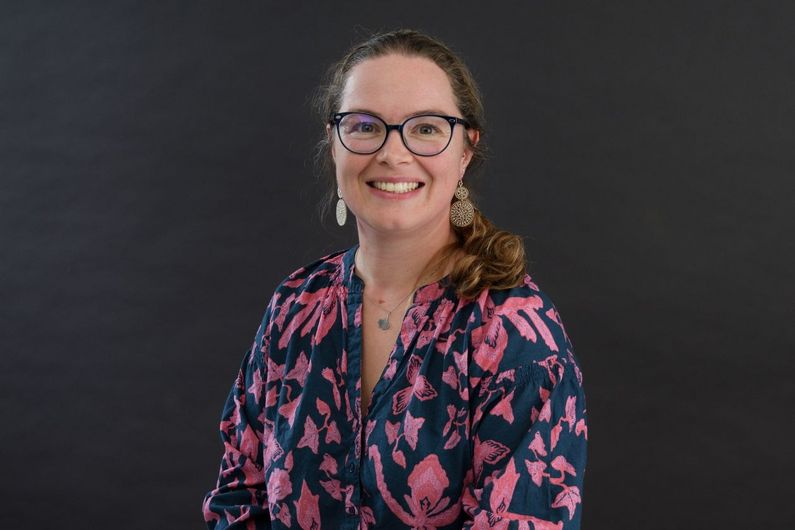Hélène Lardé: New veterinary prof comes to the Lower St. Lawrence
- UdeMNouvelles
08/26/2024
- Béatrice St-Cyr-Leroux
The first 24 students in UdeM’s new veterinary program in Rimouski are about to meet Hélène Lard, a Frenchwoman fresh from a stint in the Caribbean and new to the region.
Today, the undergraduate Doctor of Veterinary Medicine program in Rimouski welcomes its first students. The decentralized program was created in partnership with Université du Québec à Rimouski (UQAR) to train more vets, particularly to practice in Quebec’s outlying regions.
Hélène Lardé, a professor in the Department of Veterinary Biomedicine at UdeM’s Faculty of Veterinary Medicine, is getting ready to teach at the new campus for the first time. And her excitement is palpable.
“I’d never set foot in Rimouski before, or the Lower St. Lawrence or the Gaspé Peninsula, for that matter! Isn’t that strange for someone from France who’s lived in Quebec for years?” Lardé said with a laugh.
She loves the natural beauty of the region, ever popular with tourists, but there are other attractions too, such as teaching a small group of students and being able to develop personal relationships.
“Since there are only 24 students, I think we’ll quickly become a close-knit group,” she said. “I see us becoming a family. It will be easy to learn everyone’s first name. The synergies we'll develop will be great.”
Lardé is looking forward to learning about her students’ backgrounds and interests. She predicts they will have much in common, as many probably chose Rimouski because they love nature as much as she does.
She’s also pleased that half the students admitted to the program were selected for their interest in veterinary care of large animals, her speciality.
A strong connection to UdeM
A native of the northern French city of Lille, Lardé completed her veterinary training at the École nationale vétérinaire d’Alfort, near Paris. But she also feels a strong connection to UdeM—and is proud to be teaching there now, at the veterinary faculty in Saint-Hyacinthe, east of Montreal.
It's where she perfected her skills, after all.
She completed a clinical practicum in Saint-Hyacinthe and then an internship, followed by a residency in large animal surgery, a master’s degree in veterinary science and a doctorate in epidemiology, analyzing antibiotic use on dairy farms from a One Health perspective.
Always ready for a new adventure, Lardé has spent the past three years teaching large animal medicine and surgery at the Ross University School of Veterinary Medicine in the Caribbean island nation of St. Kitts and Nevis.
Today, Lardé is still excited by issues of sustainability in livestock farming and wants to continue researching antibiotic resistance, investigating a number of issues. Are resistant bacteria the same from farm to farm? How do they spread? How can their spread be stopped? What impact do they have on the health of humans and surrounding ecosystems?
Lardé noted that there are many dairy farms in the Lower St. Lawrence. A good number of them produce organic milk. Climatic conditions are also different from other dairy regions of Quebec.
“I see great opportunities for research here, especially since I’ll be in close contact with colleagues at UQAR working in related fields, such as geography or marine biology," she said. "Our disciplines and expertise are complementary and interconnected, so I’m looking forward to some great collaborations."













